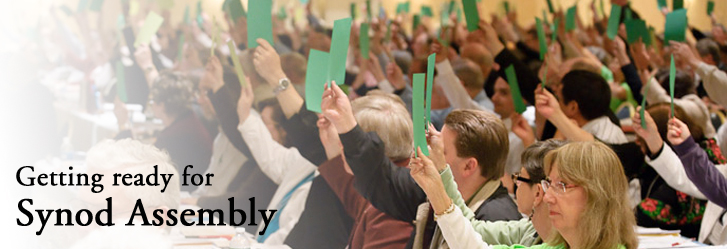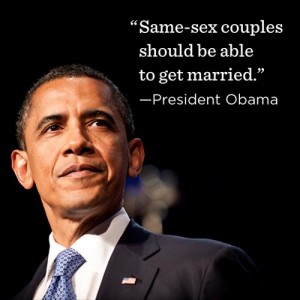A night of drinking with clergy combined with being in a new place means, like always, no sleep for the Seminarianzilla. However, after a brisk work out, lots of water, and knowing my hangover won’t hit for a few hours, I’m ready to report on last night’s festivities. (I apologize for the misspellings, poor grammar, and ugly thinking because I’m using a keyboard I don’t like and, well, that whole drinking and no sleep thing.)
I know I said on my twitter feed that I was going to attend the forum on congregation viability norms first but, well, I lied. As I entered that room, I was told that I should go to the candidates room to introduce myself (side note: the person who mentioned I should do that also asked if I wrote this blog and showed it to the bishop so, well, haha…). I did so, put on a sticky saying I’m running for Church Wide Assembly Young Adult spot (which led to a lively debate on what it means to be classified as a young adult), and introduced my platform (“Everyone says millenials are leaving the church and, well, I did the exact opposite; I joined while not growing up in the church and that’s a voice that should be heard too.”) I met a few people, had a nice chat with a clergy person who is trying to figure out how to get Gen-Xers back into the church, and then I headed to viability norms.
Now, it should be noted, that when we’re talking about congergational viability norms, what we’re really asking is “when should the synod step in” to provide leadership for a congregation that is struggling. When I read the resolution the first time, I didn’t pick up on that (and I’m sure that others made the same mistake). The idea is to set up ways to quantify a congregation’s life which, to be honest, I think is a great idea. And I think it’s kind of strange we haven’t had that baseline up till this point. I arrived while the session was going on, joined a small group, and as we read through the MNYS constitution and the ten proposed base points, I felt a little uneasy. As the only seminarian in the room, I was curious how sitting pastors and congregational leaders were going to take these points. And they did exactly what I thought they would which, to be honest, bugged me. A lot.
Point number 2 in the list is that a congregation should have the ability to “call a pastor.” Again, this makes sense. Point number one is that the congregation should be able to gather weekly for worship. Although our polity does not require a pastor at worship, it’s recommended (which makes me think that point number one should be “gather weekly to worship in Word and Sacrament”). There’s no mention of being able to call a full time pastor (which I admitted to having misgivings about) but, again, I think it’s a reasonable point. As a seminiarian who keeps being told that he will need to be “bi-vocational,” full-time calls, while the norms, are not the baseline for congregational realities right now. So, as I sat in a small group, surrounded by half a dozen pastors and half a dozen lay people, everyone – in fact, everyone in the room – focused on point number 2. No one talked about point number 8 (about buildings) or point number 9 (about insurance) or even point 3 (annual meetings). Nope, the pastor. That’s where the battle line was drawn. And I started thinking if having clergy draw up viability norms made any sense because all I saw were clergy defending their own jobs, expressing their anger, frustrations, and reliving their earlier confrontations with congregations that have been under their care. We don’t live in a state church and we live in a synod where ‘Synod Guidelines’ aren’t pushed as much as they use to. And I expect I’ll always have to fight for my job and justify its existence (just like in the freaking real world). But, wow, the anger was so thick. I was embarassed. And it made me not want to attend any of the churches in that room. Which, really, should not be the case at the synod assembly!
There was a lot of blame directed towards “the other.” The other was always the congregation that didn’t have its priorities straight, didn’t pledge enough, was filled with people who owned boats but didn’t want to pay a pastor. The rich other, or the angry other, or the spiritually weak other…it was ridiculous. As an other in society, hearing baby boomer clergy belittling the “other,” even if they are the 1%, was just upsetting. I’ll admit I kept my mouth shut. I probably should have said something. But, wow, I couldn’t believe how angry that 30 minutes in that small group made me.
Because, here’s the thing, we can’t blame the congregations. We can’t sit there and say “it’s their fault we’re not being paid.” We can’t sit there and act entitled to our compensation just because we went through a four year post-bachelor program. There is NOTHING SEXY ABOUT ENTITLEMENT. I’m not saying the church needs to be sexy but I am saying that the church needs to understand that any problem with a congregation in terms of stewardship, or priorities, or all that, is a church-wide problem. If congregation’s aren’t paying what they should, that’s all our problem. If people are taking their kids to soccer practice rather than church, that’s all our problem. We’re one body here and one church. We’re not an us-vs-them group. And, clergy especially, are not set apart like priests. We just aren’t. That’s not the Lutheran approach to clergy leadership. We aren’t Catholics or Episcopalians (I know, I know, massive generalization but hyperbole to make a point is always good). We are raised out of the church to lead in Word and Sacrament, to serve the servants, and to love them. Truly, and deeply, to love them. That does mean that the current baby-boomer driven model of clergydom will have to change. And that’s perfectly fine. There’s a group of young and up-and-coming pastors that know that and are okay with that. We’re going to work hard, we’re going to walk with God’s people, and we’re gonna make it work. Because the reality is that the church is going to change whether you want it to or not. The church has changed. And, to use a line from a bad Broadway musical, you can either “get on the bus” or stay off. And what I heard in that small group made me realize that there are a bunch of us who want to stay off the bus as long as possible.
I do think that the Strategic Plan and the Congregational Viability Norms need some amending. I would like to hear more about “mission” included in the each. I would like to hear more about Word and Sacrament and what it means to be the Church. I think we can take some clues from our ecumenical agreements and see how we acknowledge one another as viable “churches” and bleed some of that into our current dialogue. And, hopefully, that’s what we’ll get today. This morning, we’ll learn how to use our clicky voting machines and we’ll start arguing about these things. I hope our discussion is a good one.
Another side note. I finally received some clarification on a point I was worried about in the Strategic Plan about the use of the sale of church buildings. I was concerned about how it didn’t seem transparent enough and I was worried that the Synod Assembly would have no say in it. The clarification I received made more sense – saying that the line was really in place to minimize the current practice of using the sale of churches to fund current administration practices. Although I don’t know enough how the governance of the Synod works, I’m liking that line more than I use to. I just wish there was some way to get transparency of process into the strategic plan itself.


